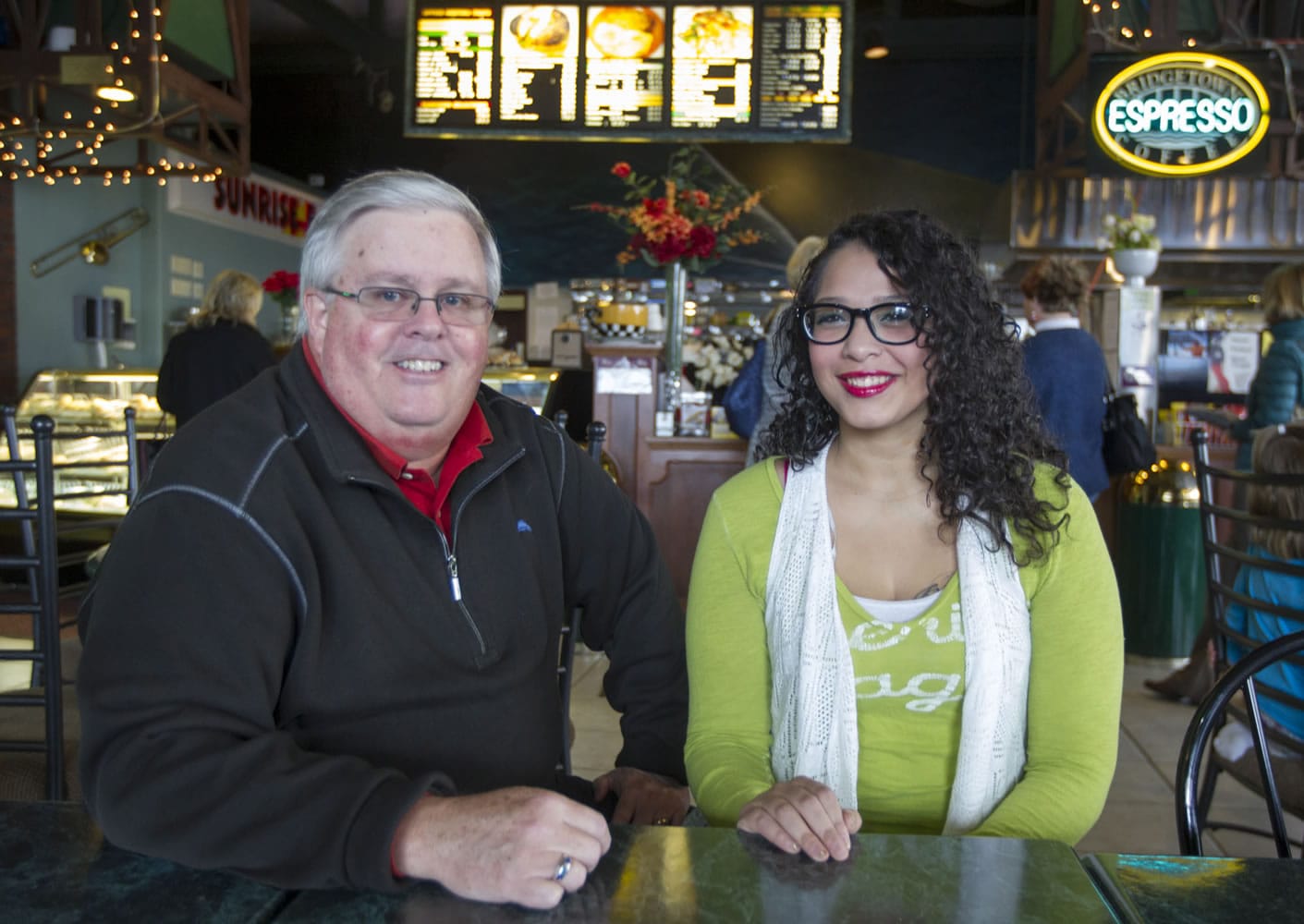To volunteer
For details about volunteering for CASA, call 360-906-9112 or visit ywcaclarkcounty.com/volunteer/casa
When Erika Corral was placed into foster care, she was a 15-year-old with heavy emotional baggage.
Her mother had been involved in drugs during Corral’s childhood. As a result, she and her siblings grew up in a largely unstable, and often unsafe, home environment, until Child Protective Services intervened.
Since she became a ward of the state, Jeff Lightburn, a volunteer with the Clark County Court-Appointed Special Advocate (CASA) Program, has served as one of the few reliable allies in her life, including when she faced a criminal charge in Juvenile Court. The charge was later dismissed.
As her “CASA,” he spent time learning about her life, meeting the adults in it and representing her interests in the court system, both in her dependency case to determine where she would live and in her legal troubles in the juvenile system. Now 18, she no longer needs a court advocate, but she still considers Lightburn to be her mentor and confidant.
“When someone stays beside you regardless of what you’ve done, it makes you feel maybe you can change and be better and open up,” she said. “I am on my way.”
Corral was fortunate to have a court advocate. Of more than 600 minors in the county’s child welfare system because of abuse or neglect, less than half of them have a court advocate to give them a voice in court proceedings, said Wendy Lenz, interim director of CASA. The program, operated by YWCA Clark County, is seeking additional volunteers to serve as court-appointed special advocates. The next training begins Jan. 8.
“The CASA’s input and their eyes and ears on families involved in dependency court is extremely important,” said Clark County Court Commissioner Carin Schienberg. “They probably meet with the family more often than the social worker has the ability to do. Sometimes when it’s a long dependency case, the most stable person in a child’s life is a CASA.”
The court advocates are required to undergo a background check and about 30 hours of training over a six-week period, Lenz said. They work with an experienced court advocate to learn more about their role and later are able to choose a case, which could include one child or several children.
Social workers often have heavy caseloads and may not have time to get to know every facet of a foster child’s life, Lightburn said. A court advocate, however, can focus on that child. They are authorized to visit the child’s foster home, biological parents, teachers, classrooms, doctors, dentists, therapists and other adults related to the child’s extracurricular activities.
“It’s like ‘Where’s Waldo,’ ” Lightburn said. “I’m all over the place. Whatever it takes. It all funnels back to the court, where you are expected to provide a report of how the kid is doing.”
When making a decision in a dependency case, Commissioner Schienberg said she carefully reads the court advocate’s report.
“It’s about their perspective and what is in the best interest of the child,” she said. “They’re not arguing for what the social worker wants or what the parents want. It’s a much more general, neutral perspective.”
Alonzo Colbert, whose two sons were placed in foster homes, said his sons’ court advocate, Caroline Bricheux, has helped to improve his interactions with Child Protective Services.
“She actually makes the situation way better,” said Colbert, who is working on regaining custody of the children. “She is actually a mediator.”
Bricheux has been a court advocate for about 11 years and has represented several children.
“Your role is to be there for the child,” she said. “Every case is different, and you can’t say one thing fits all. It’s like a novella. It’s always surprising how things ends up.”
Particularly for teenagers involved in the foster care system, “their view of adults is not very positive,” Lightburn said. “I’ve seen teens where virtually every adult in their life has let them down, so they are carrying a lot of issues with them. You, as a CASA, are trying to advocate for them, but when you start, you are just another adult in a cavalcade of adults trying to tell you what’s best for you.”
Lightburn, who has been a court advocate for 10 years, recalled what it was like introducing himself to a 14-year-old boy who was housed at a juvenile detention center in Bend, Ore.
The boy wouldn’t even look at him, Lightburn said.
“I knew I had to break the ice with this kid, so I came back three times the first week and two times the second week,” Lightburn said. “I don’t know if he got tired of listening to me or he realized I wasn’t going to go away … but he started to reflect on what I was saying.”
The boy was overwhelmed with performing a series of tasks required to earn his release from the juvenile facility. Lightburn said he told the boy to start small.
Knowing the boy was good at math, Lightburn suggested: “Why don’t you try offering help to the other boys with math? He came back the next time, and he was beaming. The staff had complimented him on what he was doing. He progressed, and he became a model youth. He got his way out.”
“I don’t give up easily — I walk the walk, not talk the talk,” Lightburn said. “They see that, and by degrees, they open up to you, and they build a level of trust and they see you are there on behalf of their best interest.”



